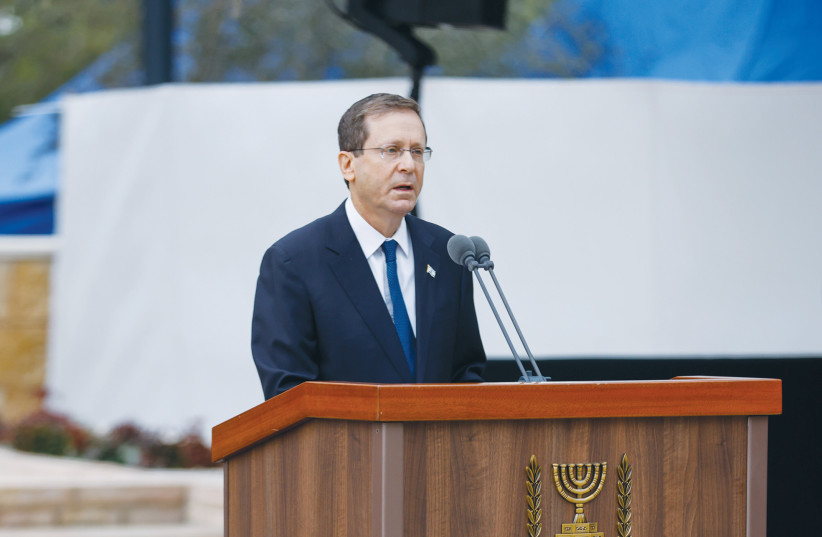While Israel yet again mourns victims of terrorism, whose number has risen to double-digit figures since the beginning of the year, families of fallen soldiers whose place of burial is unknown never stop mourning.
“There is no more difficult burden than bereavement for any human being to shoulder,” President Isaac Herzog said Tuesday at the annual memorial ceremony on Mount Herzl for soldiers whose families have never had closure. “This is a wound that never heals, a wound that is totally filled with yearning – a wound that never subsides, but only increases.”
“This is a wound that never heals, a wound that is totally filled with yearning – a wound that never subsides, but only increases.”
Isaac Herzog
Herzog related to the husband who hurriedly left without the chance to say goodbye; the brother whose smile accompanies every step; the father who is absent from all the events and celebrations in a child’s life, the son whose dreams and ambitions remain dormant forever, without being realized.
Bereavement is always difficult, he said, but more so for those who live with uncertainty and with no grave of the loved one to visit. This is a burden much harder to bear than any other, he said.
“We do not have the tomb of the unknown soldier”
Quoting poet Yehuda Amichai, the president said: “We do not have the tomb of the unknown soldier.” The quote is based on the decree by Israel’s founding prime minister David Ben-Gurion that Israel would not rest until every missing soldier is brought back to Israel for burial within the borders of their homeland.

“We will continue with this holy mission,” Herzog pledged, adding that this was one of the most important tasks of the Israel Defense Forces. “We will not leave a single soldier behind, including those missing in action,” he declared, emphasizing that there is no greater obligation.
The president expressed appreciation to all those engaged in searching for missing soldiers and the burial places of those who died or were killed on foreign soil, while paying the supreme sacrifice for Israel.
Relating the story of a particular missing soldier, Herzog said that when the Yom Kippur War broke out (in October 1973), Arlozor (Zorik) Lev was exactly 40 years old, married to Tali and the father of six children.
He was the commander of the Ramat David Air Force Base and had already been designated for promotion, but had asked to remain at the base for an extra year. Ramat David suffered a very heavy barrage during the war, and many combat pilots were killed in the first days of the conflict. Even though he was not obligated to do so, Zorik Lev opted to continue commanding the base as a personal example, and joined a mission in the north of the Suez Canal.
Fire from a SAM (surface-to-air-missile) hit his plane and he disappeared. Despite many searches, his body was never found. “I pray together with his family that one day, it will be found,” the president said.
“Zorik, who was promoted to brigadier-general 34 years after his death, is the highest-ranking IDF officer whose place of burial is unknown.
“Forty years after he fell, his wife Tali wrote about his final days: ‘Already for many days, he returns during the late hours of night. His face is tired and drawn. his silences between us become more frequent and longer. I tell him about my day with the children, and for a moment his face lights up. He smiles, and says with emotion: “You cannot imagine what it is like to be at the peak of your career exactly now. Imagine, I have been given the responsibility to defend a third of the State of Israel. That’s a great feeling of power, that they have confidence in me” and I quietly listen to his words of pride in this responsibility...’”
Zorik was the uncle of Herzog’s wife Michal, who comes from a military family. “We are with you in pain,” Herzog told the families of fallen soldiers who attended the ceremony. “We know it from close-up.”
